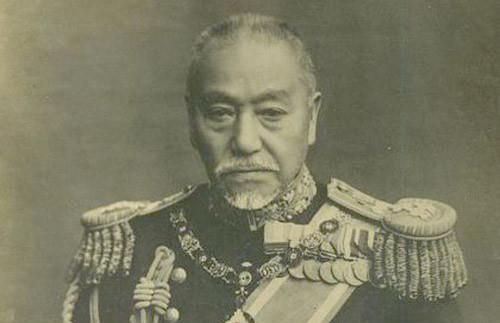Higashigo Heihachirō, Japanese Admiral, Admiral, Marquis, and the Army's Nogi Kitsune and called Japan's Meiji era "god of war", admired by thousands of Japanese, when the Japanese "god of war" defeated the Russian fleet, the Japanese Emperor held a celebration banquet for him, everyone came to praise him, Togo Heihachiro did not make a sound, but silently took out the waist tag he carried, and wrote 7 big words - "A lifetime of bowing down to Yang Ming".

This "Yang Ming" is the Chinese who has been worshipped by the Japanese "military god" all his life today, and his name is Wang Yang ming.
Wang Yangming, born in 1472, is a famous thinker, military expert and "heart science" of the Ming Dynasty, speaking of Wang Yangming's birth, in fact, somewhat extraordinary, when his mother was pregnant with him for 14 months before giving birth, he could not speak until he was 5 years old.
Until a senior monk passed by his house, touched his head and said, "Good child, but unfortunately the road is broken." Grandfather thought: "Knowing what is known, benevolence cannot keep it, and although it is gained, it will be lost." Only then did he change his name to "Wang Shouren", which is strange to say, after changing his name, Wang Yangming can speak.
It is said that although Wang Shouren could not speak before he was 5 years old, he had written down all the books that the elders of the family had read to him before, and even when his grandfather could not remember some of the contents, Wang Shouren directly said it, and the whole family was particularly happy, thinking that this child was a good seedling, after all, Wang Shouren's father Wang Hua was a Champion Lang, and Wang Shouren seemed to be able to go to high school.
However, this clever child did not put his mind on the "examination", and when he was 13 years old, he and Mr. Private School discussed "what is the most important thing in the world", and Wang Shouren replied: "The examination is not the first priority, reading is to be a sage." This sentence shocked sir.
At the age of 15, Wang Shouren repeatedly wrote to the emperor to offer advice to quell the peasant uprising, but the emperor ignored him. But Wang Shouren was not discouraged, he packed up his luggage, and went to Juyongguan and Shanhaiguan to make a field investigation alone, which took a whole month, and at this time Wang Shouren already had four ambitions in his heart.
At the age of 18, Lou Yu taught him the content of "Ge Wu Zhi Zhi Zhi", Wang Shouren felt that his heart was suddenly open, and then quickly read the works of Zhu Xi and others, and began to explore what is called "things have a fine appearance, and every grass and tree has a reason", and then put forward the concept of "the unity of knowledge and action", which had a profound impact on future generations.
At the same time, Wang Shouren was also proficient in military affairs, using soldiers "strange" and arbitrary, known as "cunning special soldiers", in 1517, Wang Shouren personally led the elite troops to solve the thieves in Jiangxi. He first found the eyes and ears of the thieves in the official palace, let the other party confess and be lenient, and obtained enemy intelligence, and then took the soldiers and horses to pretend to retreat, taking advantage of the enemy's relaxation, breaking more than 40 villages in a row, killing and capturing more than 7,000 people; in October, he broke 84 thieves' villages again, killing and capturing more than 6,000 people.
At this point, the thieves who had been committing evil in this area for more than 10 years were swept away by Wang Shouren, and all the people exclaimed, "Shouren is a god!"! In this regard, Wang Shouren sighed: "It is easy to break the mountain and the thief in the heart, but it is difficult to destroy the thief in the heart." This sentence is really touching.
So how did such a powerful figure come to Japan? This has to mention a Japanese monk named An, in 1511, the 87-year-old Zen master of the temple led a trade group to the Ming Dynasty, and after everything was properly arranged, he came to the eastern Zhejiang area to visit the mountains and rivers and understand Chinese culture.
In the eighth year of Zhengde (1513), Wang Shouren and An met on the bank of the Ningbo River, the two people had long respected each other's ideas, and they debated around the "Buddhist Void Sect", and suddenly, the academic concepts of China and Japan collided fiercely, and the nun who learned about the "heart study" was very surprised, and the two talked happily.
Later, when the nunnery was about to return to China, Wang Shouren also wrote a special article for him "Sending Japan to make the monk return to Japan", and the Zen master returned to Japan with Wang Shouren's article, which is now hidden in a museum in Japan, and it can be seen that Wang Shouren's thoughts spread to Japan as early as the 16th century, which is not difficult to explain why the Japanese "military god" Togo Heihachiro worshipped him.
Although Wang Shouren has been away from us for hundreds of years, his idea of "to the conscience" will certainly continue to be passed on, what do you think?
References: History of the Ming Dynasty, Those Things of the Ming Dynasty